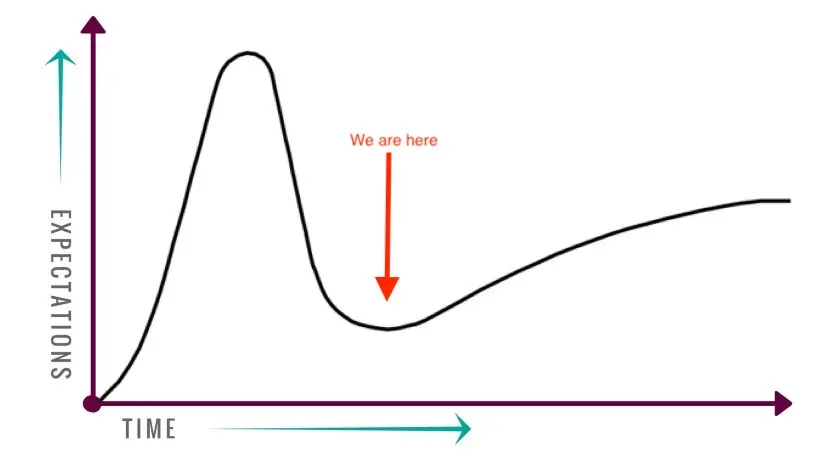The Hype Cycle of Remote Work

Just like other technologies, processes and trends, remote work is following the Gartner life cycle slope. It peaked during the pandemic, and it's now at the lowest point it will ever be in the future. Exciting times ahead!

1. Pre-pandemic (before 2020)
Back then, only a few companies worked remotely, such as @automattic, @gitlab or @buffer. Mostly startups.
Tech workers were mostly unaware of remote jobs, and afraid of all the complexity to earn salary in foreign currency, declare taxes, etc.
2. During the pandemic (2020-2022)
Many countries declared remote work mandatory or at least recommended for all digital jobs that could be done remotely.
As such, millions of people were suddenly working from home. Both companies and employees figured it out on the fly.
3. Post pandemic (from 2022 onwards)
We are now at the bottom of the valley of remote work growth. Many companies have returned to office, as expected.
On the flip side, many companies that were office-based before, are now fully remote.
The number of remote jobs at this dip of the "valley" is already 3x the number of remote jobs available before the pandemic. It's expected to only grow from here, given that most startups are now born remote by default, and remote work opportunities are reportedly growing at this point.
Also, the fact that most tech workers prefer to work remotely pushes companies of all sizes to allow remote work, or at least hybrid arrangements. In fact, remote-first companies are actively attracting employees from companies returning to the office.
Remote work changed my life back in 2016, when remote work was seen as a pipe dream by most people. Still, I got a remote job, gained traction, and have built remote teams ever since. Now, most tech workers have experienced it and loved it. Just like I did back in 2016.
Follow us for more knowledge about remote work
We'll be publishing new articles every week, and new social media content every day. If you enjoyed this article, follow us on Twitter or Linkedin, and stay in the loop. Share our content and drop us a comment there. Let's help more people learn about remote work.


